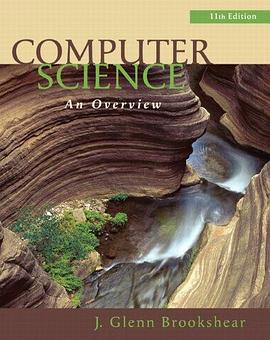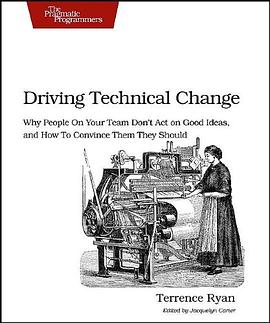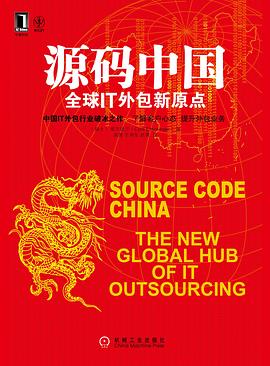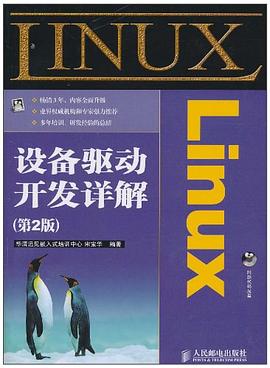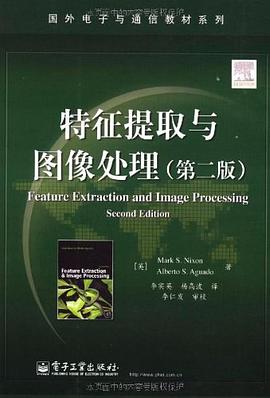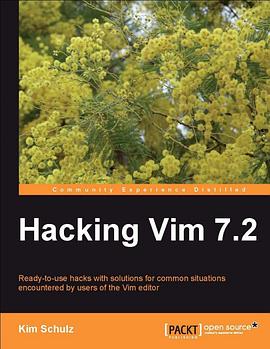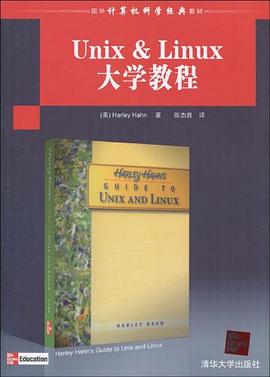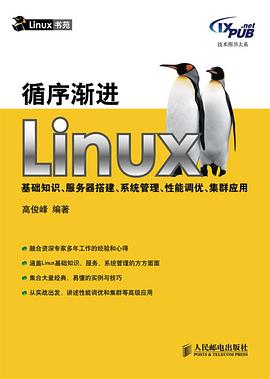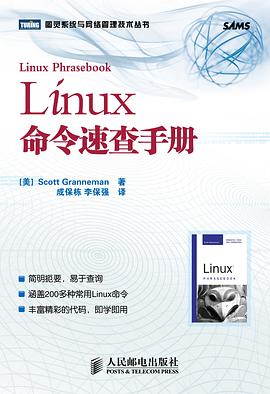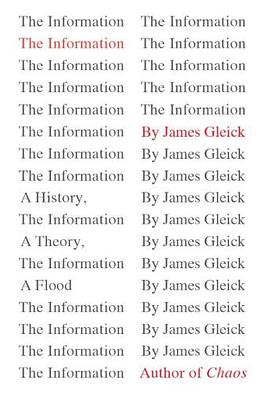

具体描述
James Gleick, the author of the bestsellers Chaos and Genius , brings us his crowning work: a revelatory chronicle that shows how information has become the modern era’s defining quality—the blood, the fuel, the vital principle of our world.
The story of information begins in a time profoundly unlike our own, when every thought and utterance vanished as soon as it was born. From the invention of scripts and alphabets to the long misunderstood “talking drums” of Africa, James Gleick tells the story of information technologies that changed the very nature of human consciousness. He provides portraits of the key figures contributing to the inexorable development of our modern understanding of information: Charles Babbage, the idiosyncratic inventor of the first great mechanical computer; Ada Byron, the poet’s brilliant and doomed daughter, who became the first true programmer; pivotal figures like Samuel Morse and Alan Turing; and Claude Shannon, the creator of information theory itself.
And then the information age comes upon us. Citizens of this world become experts willy-nilly: aficionados of bits and bytes. And they sometimes feel they are drowning, swept by a deluge of signs and signals, news and images, blogs and tweets. The Information is the story of how we got here and where we are heading. It will transform readers’ view of its subject.
作者简介
James Gleick (born August 1, 1954) is an American author, journalist, and biographer, whose books explore the cultural ramifications of science and technology. Three of these books have been Pulitzer Prize and National Book Award finalists, and they have been translated into more than twenty languages.
Born in New York City, USA, Gleick attended Harvard College, graduating in 1976 with a degree in English and linguistics. Having worked for the Harvard Crimson and freelanced in Boston, he moved to Minneapolis, where he helped found a short-lived weekly newspaper, Metropolis. After its demise, he returned to New York and joined as staff of the New York Times, where he worked for ten years as an editor and reporter.
He was the McGraw Distinguished Lecturer at Princeton University in 1989-90. Gleick collaborated with the photographer Eliot Porter on Nature's Chaos and with developers at Autodesk on Chaos: The Software. In 1993, he founded The Pipeline, an early Internet service. Gleick is active on the boards of the Authors Guild and the Key West Literary Seminar.
His first book, Chaos: Making a New Science, an international best-seller, chronicled the development of chaos theory and made the Butterfly Effect a household phrase.
Among the scientists Gleick profiled were Mitchell Feigenbaum, Stephen Jay Gould, Douglas Hofstadter, Richard Feynman and Benoit Mandelbrot. His early reporting on Microsoft anticipated the antitrust investigations by the U. S. Department of Justice and the European Commission. Gleick's essays charting the growth of the Internet included the "Fast Forward" column on technology in the New York Times Magazine from 1995 to 1999 and formed the basis of his book What Just Happened. His work has also appeared in The New Yorker, the Atlantic, Slate, and the Washington Post.
Bibliography:
1987 Chaos: Making a New Science, Viking Penguin. (ISBN 0140092501)
1990 (with Eliot Porter) Nature's Chaos, Viking Penguin. (ISBN 0316609420)
1992 Genius: The Life and Science of Richard Feynman, Pantheon. (ISBN 0679747044)
1999 Faster: The Acceleration of Just About Everything, Pantheon. (ISBN 067977548X)
2000 (editor) The Best American Science Writing 2000, HarperCollins. (ISBN 0060957360)
2002 What Just Happened: A Chronicle from the Electronic Frontier, Pantheon. (ISBN 0375713913)
2003 Isaac Newton, Pantheon. (ISBN 1400032954)
2011 The Information: A History, a Theory, a Flood. New York: Pantheon Books. (ISBN 9780375423727 )
目录信息
1 Drums That Talk 13
2 The Persistence of the Word 28
3 Two Wordbooks 51
4 To Throw the Powers of Thought into Wheel-Work 78
5 A Nervous System for the Earth 125
6 New Wires, New Logic 168
7 Information Theory 204
8 The Informational Turn 233
9 Entropy and Its Demons 269
10 Life's Own Code 287
11 Into the Meme Pool 310
12 The Sense of Randomness 324
13 Information Is Physical 355
14 After the Flood 373
15 New News Every Day 398
Epilogue 413
Acknowledgments 427
Notes 429
Bibliography 477
Index 505
· · · · · · (收起)
读后感
这是作者七年磨一剑之作,也是图灵精心打磨之作。感谢译者高博,不仅坚持翻译完成,而且反复修改,精益求精。 他在后记中提到: 当初接手这本书的翻译时,对原著的难度之高可谓始料未及。译到第2、3章时,才发现里面有大量的涉及考古学和语言学的专业翻译要求。但彼时已经深...
评分这是一本关于信息的历史书,有料有趣,作者写了七年,中文版做了两年。这本书是图灵主编武卫东亲自推荐给我的,我问他为什么花了这么久,他说「要对得起原著」。 我花了大概三个周读完,期间查阅了许多相关的资料。我从这本书里收获了太多东西,以至于读后我盯着四五个写着主...
评分 评分说说这本书的内容本身: 不得不说这是一本即很旧又很新的一本书,说它旧,是因为讲的是历史,如果你是一个科普爱好者,那么书中的大部分主题都应该读到过,或者至少听说过。说它新,是因为它的视角很新,你可能知道书中提到的那些史实,但是未必理解为什么会这样,作者带我们...
用户评价
最后三章没读,以后补上。通史,读着玩儿的
评分题目过大。如果作者专注于信息理论就好了,写Babbage, Shannon, Wiener, Turing等人的章节都不错,但后面扯到熵、遗传学和网络文化就给人「热门科普大杂烩」的感觉。
评分First Shannon had to eradicate “meaning.” The germicidal quotation marks were his. “The ‘meaning’ of a message is generally irrelevant,” he proposed cheerfully. ( Chpt 7. 8. 9. 12 )
评分Chapter 11之后的章节都是跳着读的,作者的野心超过了科普的界限,试图把Shannon的Information与"Information Age"联结到一起,其后果就是前10章与后5章的脱节,有一点不伦不类的感觉。
评分An over-rated book for me. Apparently, the author is not of science or engineering training. There are lots of technical terms that will be far better explained if the reader goes to any authors in that particular field. However, it shouldn't be ignored that the author does devise an organized method to present the history of information.
相关图书
本站所有内容均为互联网搜索引擎提供的公开搜索信息,本站不存储任何数据与内容,任何内容与数据均与本站无关,如有需要请联系相关搜索引擎包括但不限于百度,google,bing,sogou 等
© 2025 book.quotespace.org All Rights Reserved. 小美书屋 版权所有

